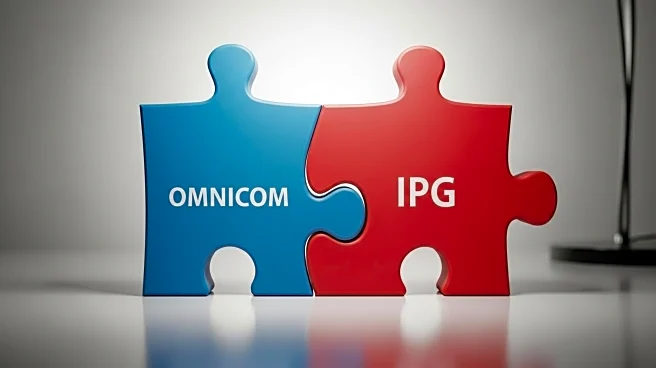What's Happening?
The Federal Trade Commission (FTC) has finalized a consent order related to Omnicom's $13.5 billion acquisition of Interpublic Group (IPG). The order prevents Omnicom from denying advertising dollars to publishers based on political or ideological viewpoints unless directed by a client. Initially cleared in June with a proposed consent decree, the order now includes additional oversight and a global scope. The FTC's decision follows a public comment period and imposes a compliance monitor. The commission's vote was 2-0-1, with Commissioner Mark R. Meador recused. The FTC has noted that advertising holding companies have previously coordinated boycotts against certain media sites, impacting their revenue and content production capabilities.
Why It's Important?
This development is significant as it highlights the FTC's increased scrutiny of advertising holding companies and their market power. By restricting politically motivated ad boycotts, the FTC aims to ensure a fairer distribution of advertising dollars, potentially benefiting smaller media outlets that might otherwise be excluded. The decision underscores the regulatory focus on maintaining competitive practices in the advertising industry, which could influence how companies strategize their ad placements and partnerships. The merger's approval also reflects ongoing international regulatory reviews, with the European Union still assessing the transaction.
What's Next?
Omnicom and IPG are expected to complete the merger in the second half of 2025. The companies will need to comply with the FTC's order, which may involve adjusting their advertising strategies to align with the new rules. The global scope of the restrictions suggests that similar regulatory frameworks could be adopted in other jurisdictions, potentially influencing international advertising practices. Stakeholders, including advertisers and media companies, will likely monitor the merger's impact on the industry closely.








